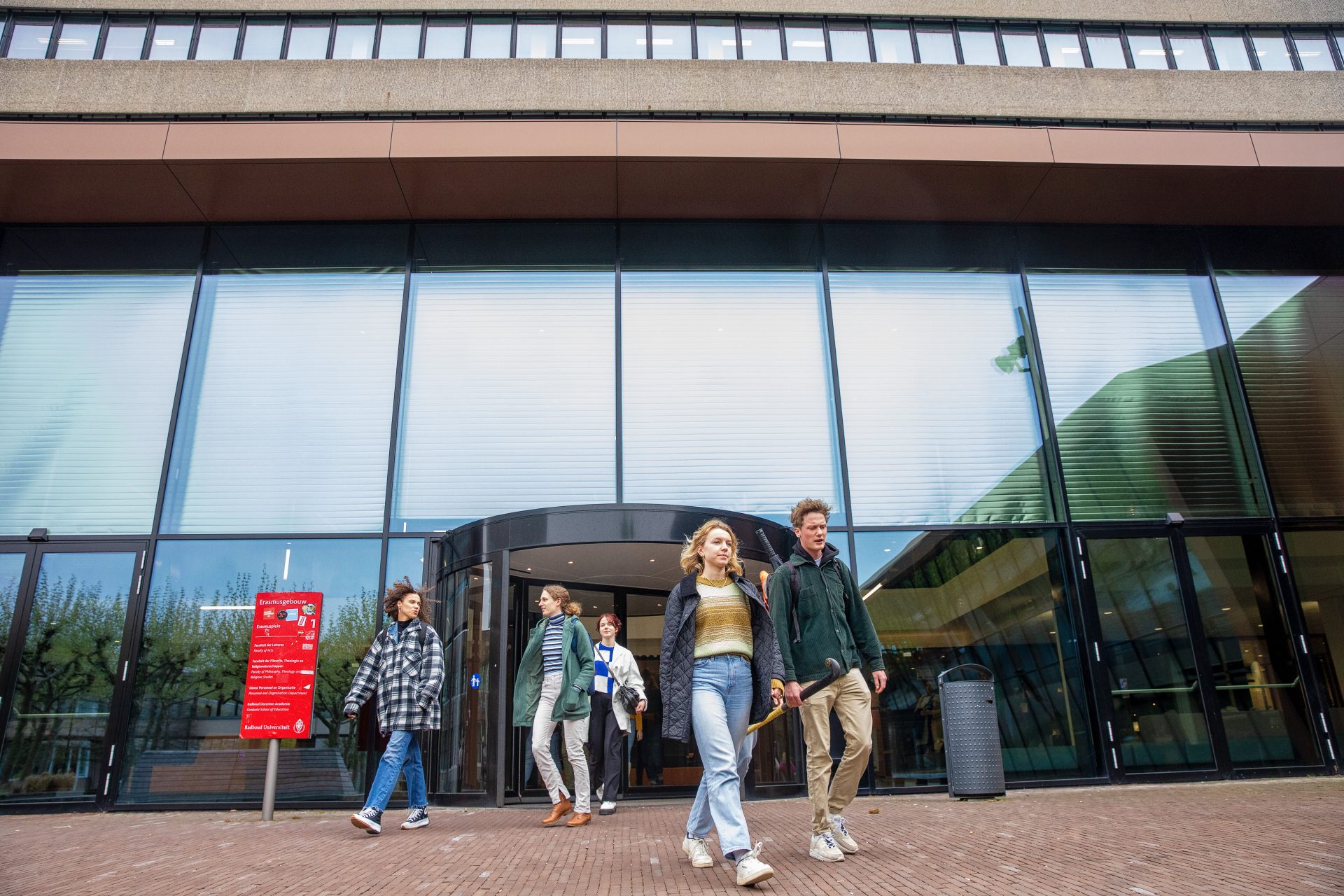-
 Foto: Dick van Aalst
Foto: Dick van Aalst
The asap student party is disbanding. It would be a real blow for student participation in Nijmegen if AKKUraatd were the only party to participate in next year’s student elections. This means that the future of Nijmegen’s participational bodies is up for discussion.
The asap student party is disbanding. What’s next?
Asap’s four elected party members will finish out the year as members of the University Student Council (USC). Although they will no longer officially do this under the asap banner, they will continue to operate as one group. Next summer, they will turn off the proverbial lights.
This means that AKKUraatd may be the only student party to compete in the elections. What would be the consequences of this?
It means that the traditional election contest between asap and AKKUraatd would no longer exist. Elections would probably still need to be held, but these would merely determine which members of AKKUraatd would be elected to serve on the student council. For many years now, asap and AKKUraatd have continued to secure four seats each – all eight of the eligible seats would now go to AKKUraatd.
That’s good news for AKKUraatd, isn’t it?
Not really, no. History student Zino Duckers served on the council last year as AKKUraatd representative and is now a board member of the National Consultation Group, an organisation that provides training courses for student council members throughout the country. He’s referred to a scenario in which AKKUraatd is the only participant in the elections as a ‘shot to the head’ for Nijmegen’s participational bodies. Lack of a campaign and contest between the parties would mean that the students would give even less thought to the participational bodies than they do now.
Is there a solution to this problem?
The university could possibly do more to highlight what the members of the student participational bodies actually do, responds Rob Vaessen, who is departmental head of Student Affairs. Steps have already been taken to achieve this. For instance, this year the university organised the Student Board Members Week; this event normally only spans one day. The university’s communication channels, such as social media, could also play a role here.
For many years, the financial allowance for student members of Nijmegen’s participational bodies was considerably lower than in other student cities. At the beginning of this academic year this amount was raised and it’s now more in line with the national average. Regular USC members receive around €4,000 a year, provided that certain conditions are met (such as sufficient attendance at meetings). According to Gwendolyn Hermans, who is chair of asap, financial compensation is important. Participatory work is not something that students do for the money, she argues, but offering more money in return for the work tends to lower the threshold for becoming a member of the participational bodies.
Behind the scenes there is the debate about whether Radboud University should organise its participational bodies so that it is more in line with the Higher Education and Research Act (WHW), which stipulates how the participational bodies at universities should be regulated. What’s that all about?
Due to its Catholic roots, Radboud University is an extraordinary university. That means that it’s allowed to deviate from the law in certain respects, and it does. One such example of this is that the university allows political commissaries from umbrella organisations to join the student council. This subsequently means that the representatives who attend meetings with the Executive Board include those from cultural and sports associations and social clubs.
But Radboud University also has its own rules at the decentralised level of the participational bodies. When it comes to votes at the Faculty Joint Assemblies, students exert less influence than staff members (40 per cent versus 60 per cent). This agreement was made many years ago, with the trade-off being that the Faculty Joint Assembly, of which the Faculty Student Council is a part, has the right of consent when it comes to the entire set of Education and Examination Regulations (EER) for the study programmes.
Do they want to get out of this agreement?
A spokesperson says that the Executive Board will only deviate from the law if the specific nature of the institution expressly demands it. The question is whether there is a good case for this at the moment. The Board would like to discuss this with the participational bodies, and has subsequently proposed an ‘investigation’ of how greater compliance with the WHW can be achieved.
Radboud University ceased to be a Catholic university in 2020 (at least that’s what the Dutch bishops claim). But that doesn’t mean that Radboud has now suddenly become a state university. Deviation from the law is still an option. But there are forces that are pushing Radboud University more towards the direction of a state university. The fact that the Board is keen to investigate how greater compliance with the WHW can be achieved means that the writing is on the wall.
For the students, it is particularly the lopsided voting structure in the faculty participational bodies that is a stumbling block. If the university organised its participational bodies in accordance with the WHW, the students’ and staff members’ faculty votes would carry the same weight.

And that’s why former student council member Zino Duckers is in favour of greater compliance with the law. And he is certainly not alone. After all, the law was born out of a democratic process. Why should Nijmegen be an exception to this? Surely Radboud University is not above the law?
There are more benefits when it comes to complying with the WHW. Within the Nijmegen participational bodies, meetings frequently involve hours of discussion about procedures and the rights of the participational bodies. These discussions include those pertaining to the question of who may vote and whether the University Joint Assembly (UGV) has the right of consent or the right to be consulted. The WHW provides answers to many of these questions. This would provide clarity for both members of the participational bodies and the Executive Board.
Many universities who comply with the WHW do not have a separate works council and student council. At such universities, students and staff join together to form one university council. Is this what would happen at Radboud University if we were to comply with the WHW?
It’s possible, but not essential. The WHW also provides scope for universities to set up a so-called shared system, which involves a separate works council and student council. But if the university did choose to change the structure of its participational bodies, the option of an undivided council would be on the table.
Some people are in favour of this option. People like Jurgen Brink, who is the Secretary of Academic Affairs. As an individual, he says that he’s in favour of the unified model. After all, many issues at the university affect both students and staff members. At this moment, one of these two groups is sometimes being sidelined at voting time. This was the case with the Code of Conduct, which was approved this calendar year. Only staff members had the right of consent when it came to this issue, while it’s obvious that students also stand to benefit from a safe work and study environment.
Regardless of whether the student and works councils were merged, it could be said that the students would have more say if the university were to comply with the WHW. Their influence – especially in the faculties – would increase once the lopsided voting structure was abandoned. And this could possibly make the participational bodies more appealing.
Yet there is obviously also something to be said for the current Nijmegen model. Giving the umbrella organisations a place on the University Student Council means that the concerns and grievances of the Nijmegen student organisations are able to reach the Executive Board much more easily. In an effort to ensure that the democratic order is not too severely undermined, the representatives from the umbrella organisations are forbidden from voting on certain issues – at the end of the day, these are members who were not elected by ballot. This means that they do not have as much influence as the elected members, but they are allowed to have their say (and, as a consequence, they are even occasionally allowed to vote).
Translated by Radboud in’to Languages.



